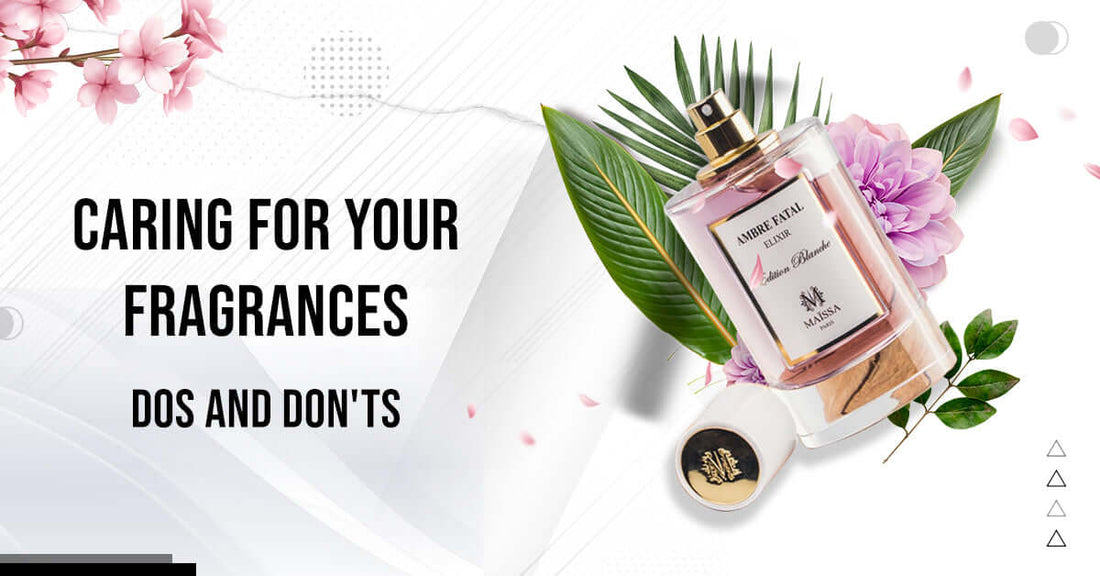

Hey fragrance enthusiasts! Ever wondered why your favourite perfume doesn't smell as amazing as it used to? Well, it's not just about choosing the right scent; it's also about taking good care of it. Imagine your perfume as a delicate flower – it needs the right conditions to bloom and stay fresh.
Here, we're going to spill the beans on the dos and don'ts of fragrance care. Think of it as a guide to keeping your perfumes in tip-top shape, so they always make you feel fabulous.
We'll talk about where to store them, how to put them on, and what not to do if you want your signature scent to last.
So, buckle up – we're about to make sure your fragrances stay as awesome as the first spritz!
Types of Rider Protection Gear
-
A. Storage Tips
-
Keep perfumes away from direct sunlight: Sunlight can mess with the delicate ingredients in your perfume, causing it to change colour and lose its magic. Find a cool, dark spot for your collection.
-
Store in a cool, dry place: Humidity is not a perfume's BFF. Keep your scents away from steamy bathrooms or any place where moisture could sneak in and alter the fragrance.
-
Use dark or opaque bottles for light-sensitive fragrances: Some perfumes are light-sensitive, meaning they prefer to be kept in the dark. Choose bottles that shield your perfume from unnecessary light exposure.
-
-
B. Temperature Considerations
-
Avoid extreme temperatures: Perfumes are like Goldilocks – they like things not too hot, not too cold. Extreme temperatures can mess with their chemical makeup. Aim for a moderate temperature zone to keep them happy.
-
Best temperature range for perfume storage: If you're wondering about the perfect temperature, think room temperature – not too hot, not too cold. Somewhere between 60-70°F (15-21°C) is the sweet spot.
-
-
C. Proper Application
-
Apply perfume to pulse points: Want your fragrance to linger? Apply it to your pulse points – wrists, neck, and behind your ears. These areas emit heat, enhancing the scent.
-
Avoid rubbing wrists together after application: It might seem like a good idea, but rubbing your wrists together can break down the fragrance molecules, affecting the way your perfume unfolds.
-
Layering fragrances correctly: If you're into layering scents, start with unscented products like lotion or oil before applying your perfume. This helps the fragrance stick around longer.
-
-
D. Closing the Bottle
-
Seal the bottle tightly after each use: Treat your perfume like a secret – keep it sealed tight. Exposure to air can alter its composition over time.
-
Avoid leaving the cap off for extended periods: Leaving the cap off invites trouble. It allows air to sneak in, potentially speeding up the ageing process of your fragrance.
-
Don'ts: Common Mistakes to Avoid
-
A. Exposure to Sunlight and Heat
-
Impact of Sunlight on Fragrance Composition:
Say no to sunbathing for your perfumes! Sunlight can break down the delicate components of your fragrance, turning your favourite scent into a not-so-pleasant surprise. -
How Heat Can Alter the Scent of Perfumes:
Perfumes are like ice cream – they don't like heat. High temperatures can cause the ingredients to react and change the fragrance. Avoid leaving your perfumes in places like the car, where it can get scorching. -
Use dark or opaque bottles for light-sensitive fragrances:
Some perfumes are light-sensitive, meaning they prefer to be kept in the dark. Choose bottles that shield your perfume from unnecessary light exposure.
-
-
B. Improper Storage
-
Storing Perfumes in the Bathroom: Bathrooms are great for showers, not for perfumes. The fluctuating temperatures and humidity levels in bathrooms can wreak havoc on your fragrances. Keep them in a cooler, more stable environment.
-
Keeping Perfumes on Display Shelves: While it may look Instagram-worthy, displaying your perfumes on open shelves exposes them to light and air, making them age faster. Opt for a closed cabinet or drawer to protect your precious scents.
-
-
C. Over-application
-
The Downside of Using Too Much Perfume: More is not always better when it comes to perfume. Over-applying can be overwhelming for you and those around you. A little goes a long way – trust us on this one.
-
Finding the Right Balance for Application: It's all about balance. Aim for a subtle, lingering scent rather than creating a fragrance cloud around you. A couple of well-placed spritzes are usually sufficient.
-
-
D. Mixing Fragrances Haphazardly
-
Potential Clashes Between Scents: Mixing perfumes can be like a science experiment gone wrong. Some scents just don't play nice together. Stick to one fragrance at a time to avoid an unintentional fragrance disaster.
-
How to Layer Fragrances Without Overpowering: If you're into layering, choose complementary scents from the same fragrance line or family. Layering should enhance, not overpower, your signature scent.
-
-
E. Neglecting Regular Checks
-
Importance of Checking Perfume Condition: Ignoring your perfume's well-being is like forgetting to water your plants. Regularly check for changes in colour, consistency, or scent to catch any signs of deterioration early.
-
Signs That a Fragrance May Have Gone Bad: If your perfume smells off or looks different than when you bought it, it might be time to bid farewell. Expired perfumes can be less enjoyable and even cause skin irritation.
-
Conclusion
Caring for your fragrances is a celebration of the sensory delights that make each bottle unique. You've
learned the dos, ensuring your scents stay vibrant with proper storage and application, and the don'ts,
avoiding pitfalls like sunlight exposure and over-application.
With the right care, your perfumes will continue to be an expression of your unique style, leaving a
scented trail of confidence and allure wherever you go.
Happy fragrance adventures!

